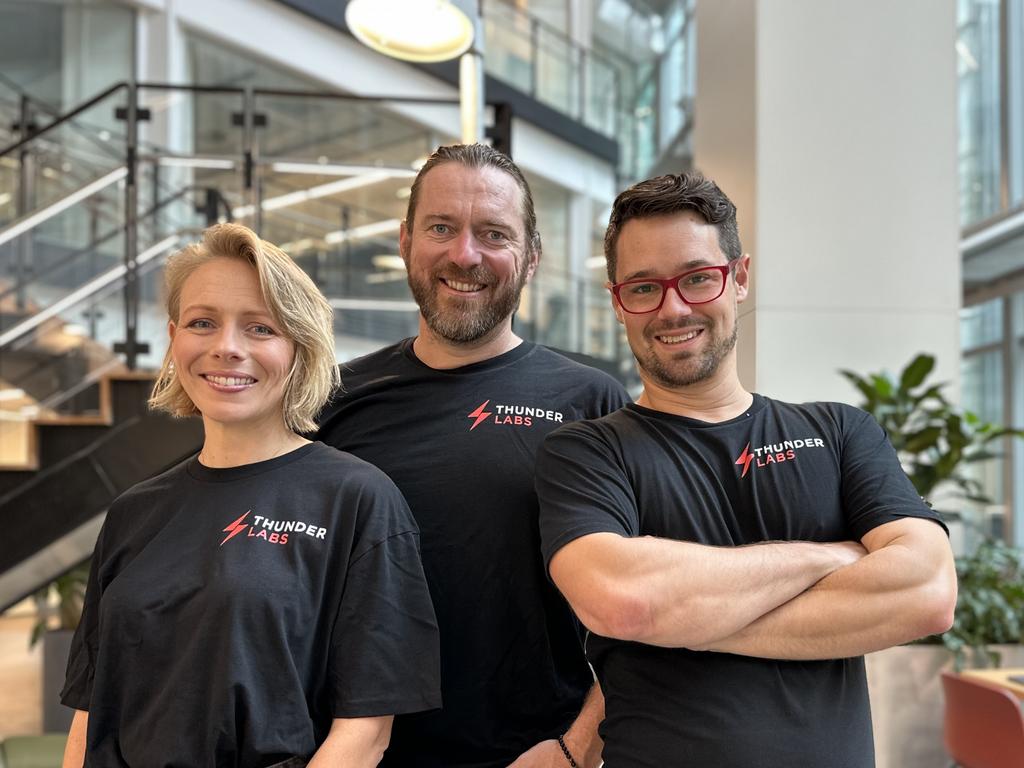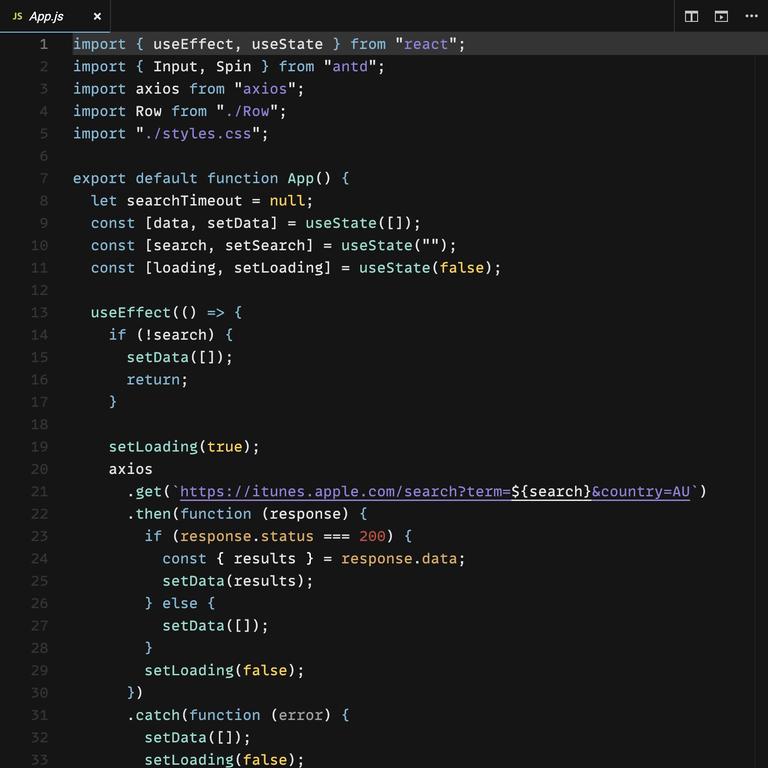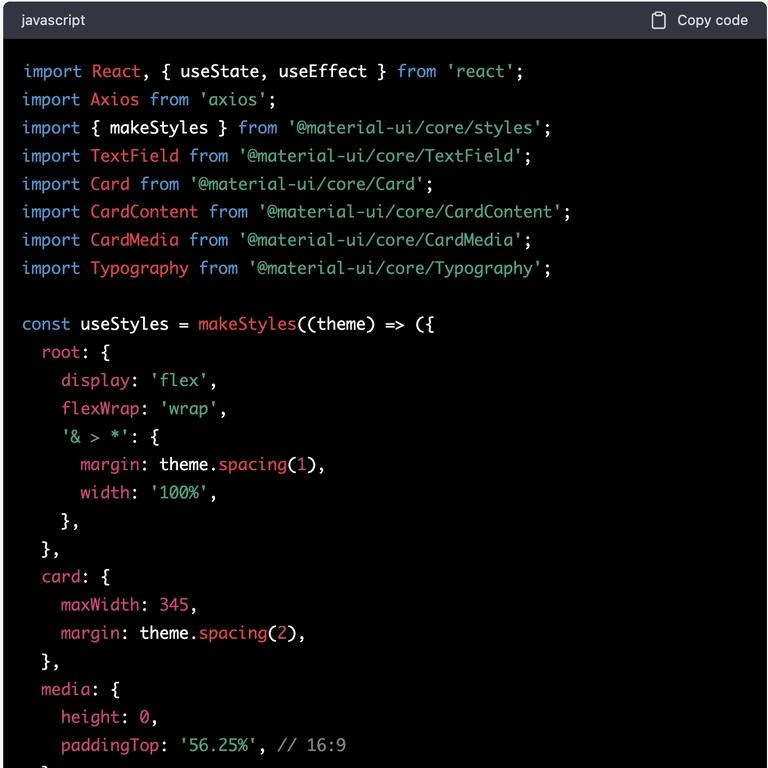‘People using AI are going to steal everybody’s jobs’: How to use ChatGPT to your advantage
Think we need to stop people using ChatGPT at school and work? That ship has sailed. See how you can use artificial intelligence tools in your job – or to land a job.
Artificial intelligence won’t steal your job, but people who know how to use it might.
That’s the message from Aussie IT recruiter ThunderLabs, which fed a coding task for entry-level developers into ChatGPT and found the bot was better at following instructions than 70 per cent of human job applicants.
The results came as a similar test by Google have revealed ChatGPT could land a level three programmer position with a salary of US $183,000.
ThunderLabs managing director Adam Long said the recruitment task was to “build a web app that searches the iTunes API for artists and shows matching results”, with applicants given 24 hours to complete five steps, ultimately producing code and deploying it in a testing environment.

“It doesn’t need to be fancy, we just want to see if you can tick off the five things,” Mr Long said.
“About 70 per cent of people (who have done the assessment) fail to do one of these five.”
In the experiment, ChatGPT completed all steps almost perfectly, but as it is not connected to the internet, it produced a hyperlink that sent Mr Long to an incorrect website – instead of music artists, it showed Harry Potter data.
Still, Mr Long said the chat bot’s work was good enough to be offered a job interview.
“I showed this to the engineers and they said ‘yeah, we’d want to interview this person’,” he said.
“It’s not that AI is going to come and steal everybody’s jobs, but people using AI are going to come and steal everybody’s jobs.”


Mr Long said IT professionals needed more than just technical skills.
The most productive engineers and software developers had high empathy and a good understanding of what people want – qualities that could not yet be replicated by AI.
“(A manager might say) ‘that’s where I want the button to be’ but that’s not really what they want. What they want is to make somebody’s life easier or to speed up their business,” he said.
“ChatGPT will put the button exactly where it was told to, but the humans need to come along and figure out what are they actually trying to achieve and is there a better way.”
Mr Long said he was “all for” job applicants using ChatGPT to complete recruitment assessments, as it was just another tool available to deliver a result.

Similarly, Nicole Gorton, director of recruitment firm Robert Half, was not worried about applicants using ChatGPT to help write resumes and cover letters.
“People have been outsourcing their resumes for a very long time … this is another form of outsourcing,” she said.
“It really comes out in the interview process.”
WORKERS ALREADY USING GENERATIVE AI
TEACHERS
ChatGPT has been used to develop skeleton lesson plans, create templates and delegate simple questions from students, according to Griffith Institute for Educational Research director Professor Leonie Rowan.
“It can free up teachers’ time to do more complicated thinking work,” she said.
“Teachers at schools are under heaps of pressure and it’s contributing to teacher stress and burnout.”
Students could ask the chat bot questions they would otherwise ask a tutor.
“It doesn’t get tired, bored or say ‘I’m going to charge $50 for the next hour’,” Prof Rowan said.

LAWYERS
Prof Rowan said lawyers had used ChatGPT to speed up their work, making it less expensive for clients.
Although she would not trust the bot on its own, she would trust a lawyer using the tool.
“They can have a quick scan over and go ‘yeah, that’s right’ and it might save half the time,” she said.
WRITERS
ChatGPT was also a great companion tool for journalists and novelists – summarising documents and translating concepts into language suitable for different audiences.
“But you have to know what you are doing with it – ChatGPT is only as good as the questions you ask it,” Prof Rowan said.
The University of Sydney Media and Communications research director Dr Joanne Gray said she used ChatGPT for copyediting or to make her writing more persuasive or succinct.
PHOTOGRAPHERS
Commercial photographer Simon Wong has been in the business for 23 years so has seen the introduction of digital photography and Photoshop, and now AI.
He has been experimenting with Midjourney – an AI tool that turns text prompts into art – to test ideas, find inspiration and produce magazine-quality fashion imagery.
“I can use Photoshop to draw a picture, however the processing from concept to finish would take hours,” he said.
“(In Midjourney) it takes 30 or 40 seconds to generate pictures and give options to test different things.
“I think to will be good for the industry because you shorten the production time and time is money. It will help you (have time to be) more creative.”

GRAPHIC DESIGNERS & ANIMATERS
Netflix recently came under fire for using AI to produce backgrounds for an animated short.
Similarly, many small and medium-sized business have been turning to AI to design company logos.
ThunderLabs’ Adam Long said creative professionals in these areas would increasingly work as “AI directors”, telling the technology what to do rather than doing it themselves.
“A film director doesn’t write the script, they don’t hold the camera, they don’t do the acting, yet they are the one who gets the credit,” he said.
“Using AI is just like that – getting all the different parts together.”
REAL ESTATE AGENTS
Agents reported using ChatGPT to write real estate listings and marketing copy, turning a few dot points about a property’s features into persuasive paragraphs in seconds.
SOFTWARE DEVELOPERS & WEB DESIGNERS
ChatGPT has been widely used to generate computer code in languages such as Python or JavaScript, as well as fix code that is not running as intended.
Although the output still needs to be checked, it speeds up the work of professionals such as software developers, data analysts and web designers.
JUDGES
Colombian judge Juan Manuel Padilla last month revealed he had used ChatGPT to decide a case, asking the bot questions such as: “Is autistic minor exonerated from paying fees for their therapies?”.
Together, he and the bot concluded that a child’s medical expenses and transport costs should be paid by his medical plan as his parents could not afford them.
More Coverage
Originally published as ‘People using AI are going to steal everybody’s jobs’: How to use ChatGPT to your advantage





